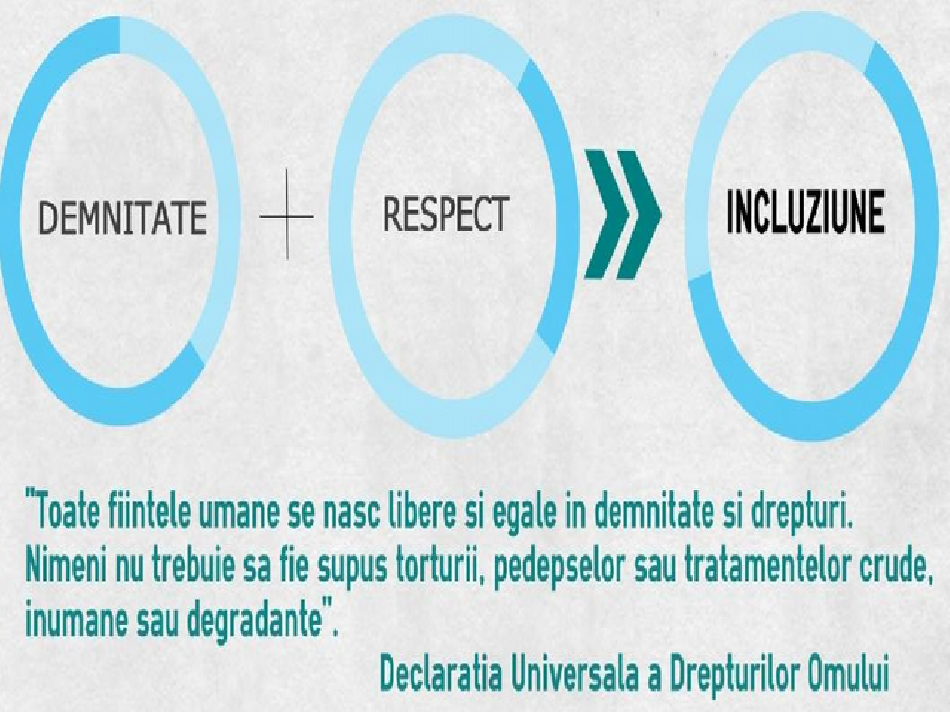A Plea for Dignity
The issue of people who suffer from intellectual disability or mental retardation has never been approached in Romania from the perspective of human rights. Although several international institutions have voiced concern over how these people are being tr

Ana-Maria Cononovici, 27.11.2013, 13:14
Against this background, the Legal Resources Center has launched a program called “A Plea for Dignity”, aimed at contributing to the setting up of an independent mechanism for monitoring the institutions for the mentally disabled, the psychosocial institutions included. The program also plans to improve the legal and institutional framework as regards the protection of the mentally disabled, and to improve the capacity of integrating and accepting these people within the community.
Georgiana Marinescu, executive manager of the Legal Resources Center explains what fundamental rights can be broken in the case of people in placement centres: “Depravation of liberty does not mean only detainment or penitentiary. It means being in a placement center and having no right to go out when you want to. It means being committed to a center for people with disabilities, in a psychiatric hospital or a neuro-psychical rehabilitation center. You cannot get out of there, you’re not allowed to. You know when you get in but you never know when you get out, and that’s deprivation of liberty. And if we talk about deprivation of liberty, then patients should enjoy the guarantees those in penitentiaries and those arrested have, and even more than that, because they are a vulnerable category that needs protection.”
Since its launch, the program “A Plea for Dignity”, has dealt with several cases of human rights violation in placement centers, some of which were taken to the European Court of Human Rights. Beyond the wish to solve these cases, the Center, through its representatives, is fighting to solve some problems of the system. A case brought to the attention of the European Court for Human Rights is that of Valentin Campeanu, a young Roma ethnic, abandoned at birth, who suffers from HIV infection, mental retardation and tuberculosis, who died at 19, after being transferred from a foster care center for minors to a center for people with mental problems.
Constantin Cojocariu, a lawyer with the NGO “Integris” tells us more about this case: “We have reported the violation of many rights stipulated in the European Human Rights Convention, such as the right to life, freedom, to private life, to not being discriminated, and to an efficient remedy. Campeanu was practically alone, in the authorities’ hands, that have deprived him of all his rights and failed to protect him in any way. People like him are invisible in a way and they become visible only tanks to cases like this. Problems are of structural nature and we need to find solutions to them.”
Georgiana Pascu, manager of “A Plea for Dignity” program is the woman who at the time got involved personally in the Campeanu case and has told us why this case has become emblematic: “The case is that of a young man, who had just turned 19, in February 2004. This case includes all elements: mental health disorder, young age, a defenceless, orphan. It shows us a problem affecting the healthcare system, namely that each and every person working in the healthcare system plays a very important role. We should not minimise the role played by the social assistant, who has sent notifications, made a series of requests, or the role of the County Council President, the role played by the educator, who should have accompanied Valentin. But, he got transferred, just like a minutes. The papers for Valentin’s transfer read: ’the equipment and the child get transferred’. Things are far more dramatic.”
After visiting several foster centres, the rapporteurs of the Legal Resources Centre have signalled cases of severe abuse and they also tried to identify the origin of the problems. In most cases, the investigation carried out in foster care centres shows that the situations of abuse are perpetuated for several reasons. One of them is the structure of the centres, which do not observe these young persons’ rehabilitation needs, the more so as they are minors, with different vulnerabilities and need different and specific types of attention.
Furthermore, the centres are understaffed or the staff is not properly qualified for the work. Another reason is the lack of financial motivation and continual professional training for all professional categories of personnel working in these centres. One last inconvenience is the lack of instruments to signal abuses by the abused young people and the lack of a mechanism allowing these teenagers to have access to justice. This is precisely what the Legal Resources Centre has done, in its effort to fight for the right to represent these young people in the relation with the state.






























